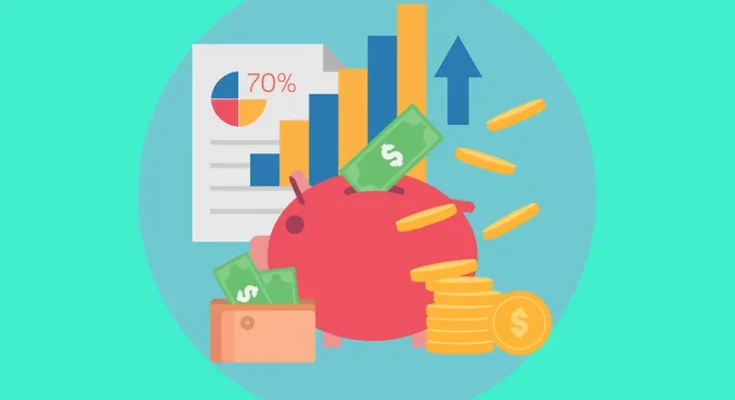Budgeting is often viewed as a chore or something that restricts spending, but it’s much more than that. A well-planned budget serves as a roadmap to achieving financial goals, managing expenses, and building a secure future. By understanding the importance of budgeting and how to create an effective budget, you can gain better control over your money and set yourself on a path to financial success.
1. Why Budgeting Matters
- Provides Financial Clarity: A budget gives you a clear picture of where your money goes each month, helping you identify unnecessary expenses and opportunities for savings.
- Prevents Overspending: By setting limits on your spending, a budget helps ensure you’re not living beyond your means, which can lead to debt.
Quick Insight: Budgeting isn’t about restriction; it’s about spending your money on what truly matters to you.
2. Set Clear Financial Goals
- Short-Term and Long-Term Goals: Identify what you want to achieve financially, whether it’s saving for a new car, building an emergency fund, or preparing for retirement.
- Prioritize Your Goals: Break down your goals into priorities so you know where to allocate your resources first.
Pro Tip: Writing down your goals increases the likelihood of achieving them by reinforcing commitment.
3. Track Your Income and Expenses
- List All Sources of Income: Include your main income as well as any side earnings.
- Categorize Your Expenses: Divide your expenses into fixed (rent, utilities) and variable (groceries, entertainment) to understand where adjustments can be made.
Budget Tip: Keeping track of even the smallest expenses can highlight areas where you can save.
4. Choose the Right Budgeting Method
- 50/30/20 Rule: Allocate 50% of your income to needs, 30% to wants, and 20% to savings and debt repayment.
- Zero-Based Budgeting: Assign every dollar of income a specific job, ensuring nothing is left unaccounted for.
Budgeting Insight: No single method works for everyone—choose one that suits your financial habits and goals.
5. Build an Emergency Fund
- Start Small: Aim to save $1,000 initially as a starter fund. Over time, work towards building three to six months’ worth of living expenses.
- Keep It Separate: Store your emergency fund in a separate, easily accessible account to avoid the temptation of using it for non-emergencies.
Life Skill: An emergency fund helps prevent financial stress and provides a safety net during unexpected events.
6. Cut Unnecessary Expenses
- Evaluate Your Spending: Look at discretionary spending such as dining out or subscription services that could be reduced or eliminated.
- Budget Alternatives: Opt for budget-friendly alternatives, like cooking at home instead of eating out or choosing free entertainment options.
Money-Saving Tip: A simple mindset shift from “I can’t afford this” to “I choose not to spend on this” empowers you to take control of your budget.
7. Automate Your Savings
- Set Up Automatic Transfers: Arrange for a portion of your paycheck to be automatically transferred to a savings or investment account. This makes saving a habit and reduces the temptation to spend.
- Utilize Apps: Use budgeting apps that automate savings by rounding up your purchases and depositing the difference.
Financial Insight: Automation can make savings consistent and effortless, boosting long-term financial health.
8. Review and Adjust Your Budget Regularly
- Adapt to Life Changes: Your budget should evolve as your life changes. New job? Marriage? Kids? Adjust your budget accordingly to reflect these shifts.
- Set a Routine: Review your budget monthly or quarterly to make sure you’re on track with your goals and identify areas that need tweaking.
Final Thought: A budget isn’t set in stone—it’s a living document that should adapt with you.
9. Stay Accountable
- Get a Budget Buddy: Share your financial goals and progress with a trusted friend or family member who can help hold you accountable.
- Celebrate Small Wins: Recognizing and celebrating progress keeps you motivated and makes budgeting feel rewarding.
Motivation Insight: Accountability and small rewards can make budgeting a positive experience rather than a tedious task.
10. Understand That Budgeting Is a Lifelong Skill
- Consistency Over Perfection: Budgeting is about building a habit, not about being perfect. There will be months when you overspend or miss a savings goal—that’s okay. The important thing is to learn from these moments and keep going.
- Financial Education: Continue to educate yourself on money management, saving strategies, and investment options to make the most of your budget.
Life Perspective: Budgeting is the foundation of a financially secure and fulfilling life. Start now, and your future self will be grateful.
Conclusion
Budgeting is more than just a financial tool; it’s a life skill that enables you to take charge of your financial destiny. By creating and sticking to a budget, setting goals, and making mindful financial choices, you build a foundation for a secure and prosperous future. Remember, the purpose of a budget is not to restrict your enjoyment but to ensure you’re spending on what truly matters to you and saving for what lies ahead.
Start small, stay consistent, and celebrate your progress. Mastering budgeting can set you on a path not just to financial stability, but to a richer, more confident life.



